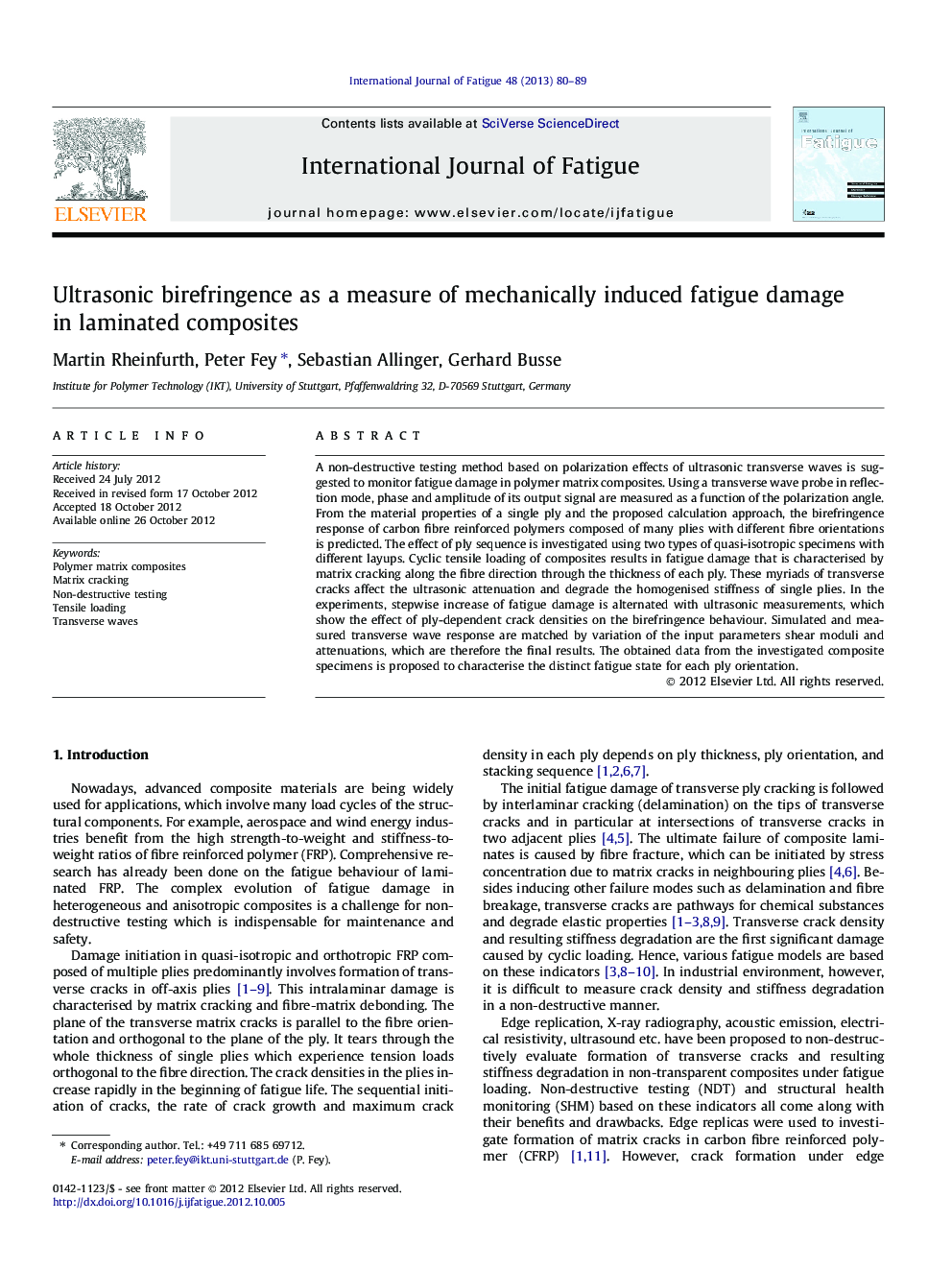| Article ID | Journal | Published Year | Pages | File Type |
|---|---|---|---|---|
| 780877 | International Journal of Fatigue | 2013 | 10 Pages |
A non-destructive testing method based on polarization effects of ultrasonic transverse waves is suggested to monitor fatigue damage in polymer matrix composites. Using a transverse wave probe in reflection mode, phase and amplitude of its output signal are measured as a function of the polarization angle. From the material properties of a single ply and the proposed calculation approach, the birefringence response of carbon fibre reinforced polymers composed of many plies with different fibre orientations is predicted. The effect of ply sequence is investigated using two types of quasi-isotropic specimens with different layups. Cyclic tensile loading of composites results in fatigue damage that is characterised by matrix cracking along the fibre direction through the thickness of each ply. These myriads of transverse cracks affect the ultrasonic attenuation and degrade the homogenised stiffness of single plies. In the experiments, stepwise increase of fatigue damage is alternated with ultrasonic measurements, which show the effect of ply-dependent crack densities on the birefringence behaviour. Simulated and measured transverse wave response are matched by variation of the input parameters shear moduli and attenuations, which are therefore the final results. The obtained data from the investigated composite specimens is proposed to characterise the distinct fatigue state for each ply orientation.
► New NDT methodology for monitoring fatigue damage in FRPs. ► Birefringence of transverse waves in FRP is modelled and measured. ► Measurement and model are in good agreement. ► Method reveals distinct fatigue state for each ply orientation of a layup. ► Technique has potential for application in industrial environment.
